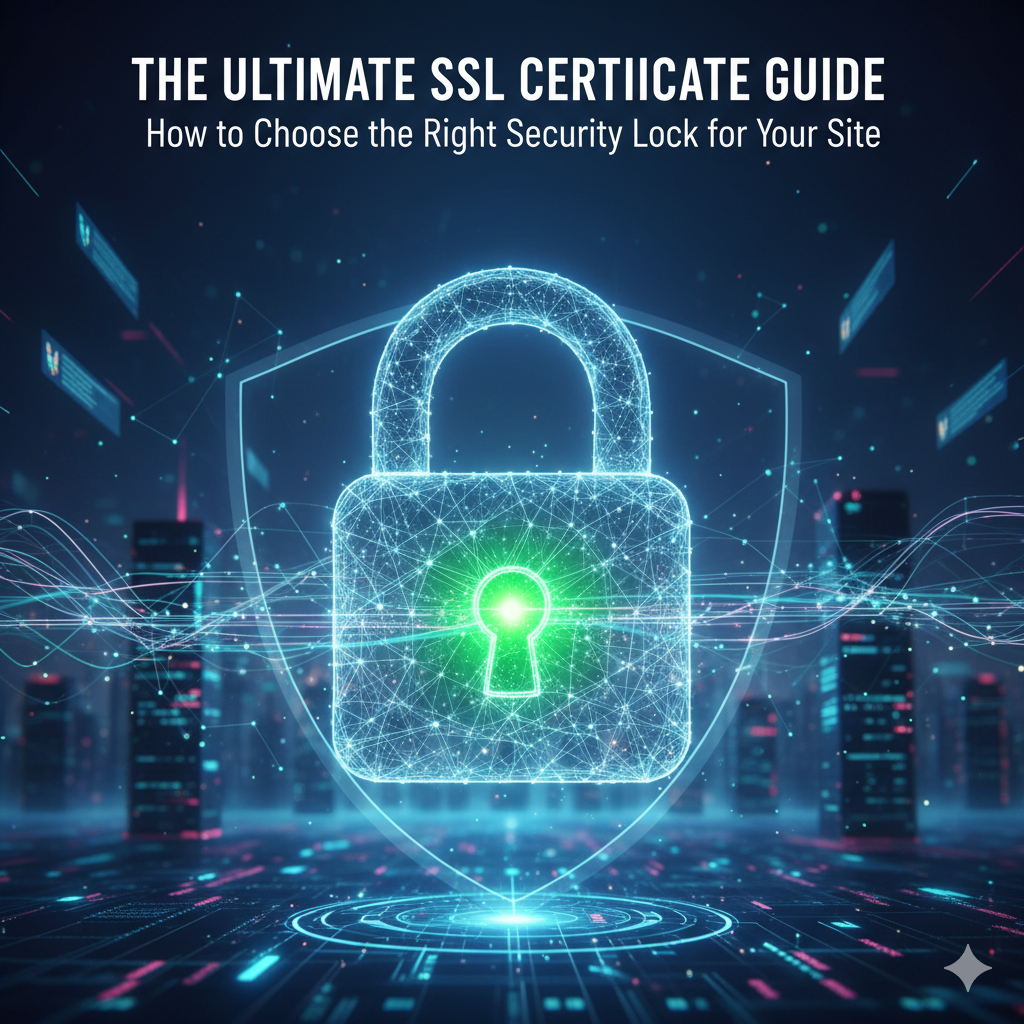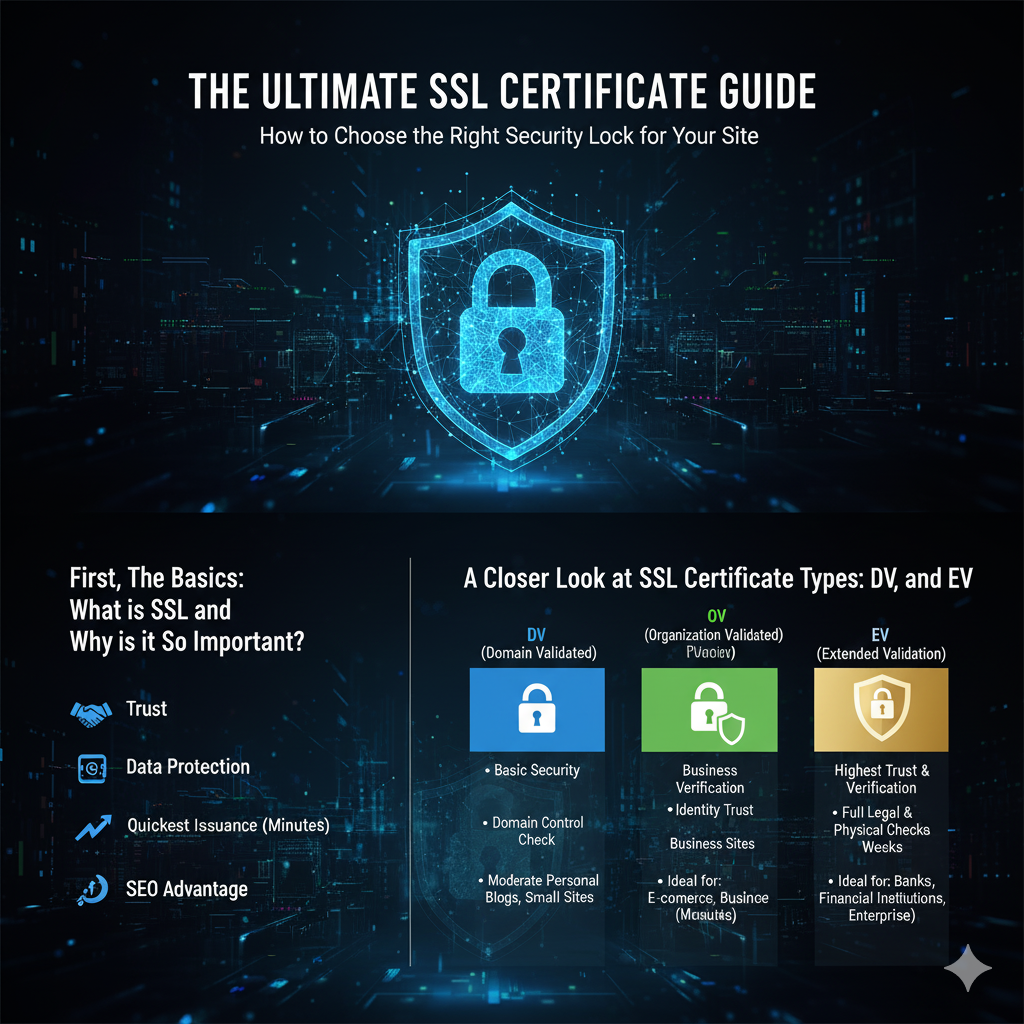The Ultimate SSL Certificate Guide: How to Choose the Right Security Lock for Your Site
While browsing the internet, we've all noticed that small padlock icon in the address bar. This tiny symbol, which tells us "This site is secure," is powered by an important technology called an SSL certificate. It's no longer a "nice-to-have" for a website; it has become an absolute "must-have."
But are all these "locks" the same? Could the security required for a personal blog be the same as that needed by an e-commerce giant or a bank? The answer, of course, is no. This is where confusing abbreviations like DV, OV, and EV come into play.
It's perfectly normal to be confused. Let's clear up this confusion together and walk through how to choose the right digital identity for your website in simple, understandable terms.

First, The Basics: What is SSL and Why is it So Important?
In its simplest terms, SSL (Secure Sockets Layer) is a security protocol that encrypts the data sent between a website and a visitor's browser. This encryption prevents third parties from reading sensitive data like usernames, passwords, and credit card information.
Having an SSL certificate provides you with three key advantages:
- Trust: Your visitors can browse and transact on your site with confidence, knowing their information is safe.
- Data Protection: You fulfill your legal responsibilities by protecting your customers' sensitive information.
- SEO Advantage: Search engines like Google reward secure (HTTPS) sites by placing them higher in search rankings.
A Closer Look at SSL Certificate Types: DV, OV, and EV
Now, let's get to those famous abbreviations. These letters actually represent how detailed the identity verification process is for the certificate.

1. DV (Domain Validated) Certificate
What is it? This is the most basic and common type of SSL. The issuing authority only requires you to prove that you control the domain name (e.g., erkmenhost.com). This is usually done through a simple process like an email confirmation or adding a DNS record.
Validation Process: Fully automated and takes just minutes.
Who is it Ideal For? It's a perfect and affordable solution for personal blogs, portfolio sites, and informational pages that do not collect sensitive user data. If basic encryption and the "secure" padlock are all you need, this is for you.
2. OV (Organization Validated) Certificate
What is it? At this level, things get more serious. The certificate authority verifies not only the domain name but also that the business behind it is a real, legitimate organization. This check is done through business records, phone calls, and other steps.
Validation Process: Typically takes 1-3 business days.
Who is it Ideal For? A strong choice for corporate websites, SMEs, and commercial entities that have a membership system or collect personal data (name, email, phone, etc.) through forms. Visitors can click on the certificate details and see your company's name, which adds an extra layer of trust.
3. EV (Extended Validation) Certificate
What is it? This is the pinnacle of trust. The validation process for an EV certificate is extremely strict and detailed. The certificate authority thoroughly investigates your company's legal, physical, and operational existence.
Validation Process: Can take anywhere from a few days to a week.
Who is it Ideal For? The gold standard for e-commerce sites that process online payments, banks, financial institutions, and any platform where user trust is absolutely critical. It provides the highest level of assurance to visitors and is the strongest defense against phishing and fake sites.
So, Which One is for You?
To make your decision easier, let's summarize:
- If you're thinking, "I just have a blog, I just need it to look secure," then a DV Certificate will get the job done.
- If you're saying, "We're a corporate business and we ask customers to fill out forms," an OV Certificate will add seriousness and credibility to your brand.
- If your goal is, "I sell products with credit cards on my site, my customers must have complete peace of mind," then you will absolutely see a return on your investment with an EV Certificate.

